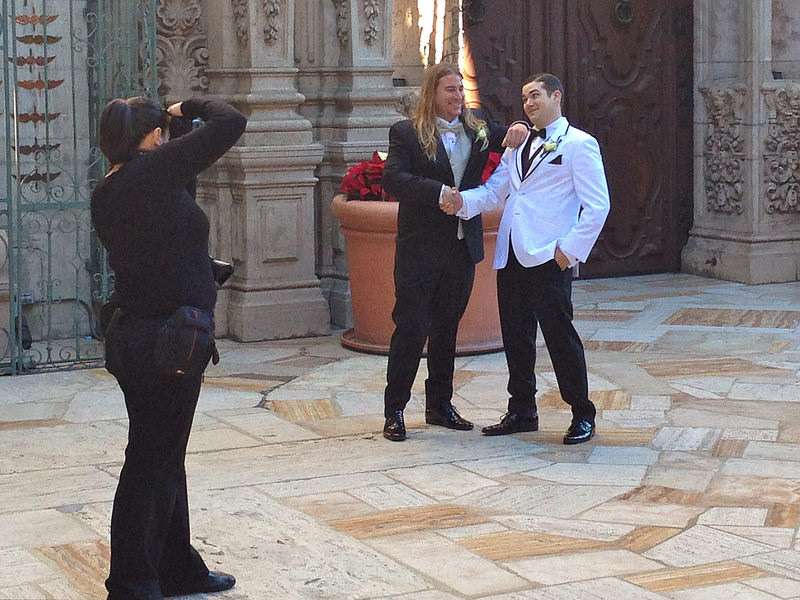Supreme Court Won't Hear Gay Wedding Photography Case


The Supreme Court announced this morning it will not be taking up the case of Elane Photography, LLC v. Willock. The case revolves around a photographer in New Mexico declining to provide services to a same-sex couple's wedding. The photographer's decision to refuse the couple caused her small business to run afoul of the state's anti-discrimination laws. The photographer did not support gay marriage and argued that forcing her to accept the couple as clients violated her First Amendment rights.
By refusing to hear the case, the court leaves intact the ruling by the New Mexico Supreme Court that Elane Photography had violated the state's anti-discrimination laws for refusing to accommodate the couple. New Mexico has a broad definition of "public accommodation," including just about any establishment that offers goods and services to the public, not just places like hotels, restaurants and entertainment venues.
The refusal of the Supreme Court to hear the case may inspire more legislation to apply the Religious Freedom Restoration Act (RFRA) to states, as happened last week in Mississippi. Since I last took note of the Mississippi law passing, the governor has signed it. There is some outrage that the law is creating gay segregation in Mississippi, an argument that is both insulting and inaccurate. Again, Mississippi's law mimics federal law in that it requires the government to prove it has a "compelling interest" in forcing a resident to have to violate his or her freedom of religious expression. It doesn't legalize discrimination against gays. I would add that Mississippi also currently doesn't include sexual orientation in its anti-discrimination laws, so it's already legal to deny jobs and services to gays there. (Also, there was that little thing about racial segregation being mandatory under the law.)
Previously, I made the case for some heavy duty revisions of public accommodation laws, because it's absurd to attempt to argue that anybody has a "right" to a wedding cake or a wedding photographer, regardless of the customer's sexual orientation.


Show Comments (236)